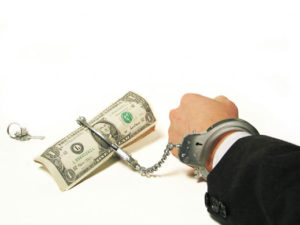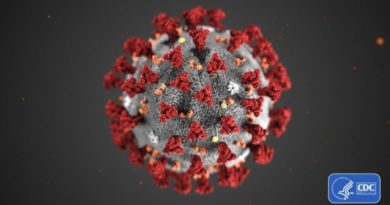STOP CORRUPTION: Why Tackling Corruption Is So Urgent—and So Difficult
 A street cleaner walks past a poster promoting then-Peruvian President Martin Vizcarra and his proposed reforms aimed at tackling corruption, in Lima, Peru, June 4, 2019 (AP photo by Martin Mejia).
A street cleaner walks past a poster promoting then-Peruvian President Martin Vizcarra and his proposed reforms aimed at tackling corruption, in Lima, Peru, June 4, 2019 (AP photo by Martin Mejia).Why Tackling
A street cleaner walks past a poster promoting then-Peruvian President Martin Vizcarra and his proposed reforms aimed at tackling corruption, in Lima, Peru, June 4, 2019 (AP photo by Martin Mejia).

The world is constantly reminded that corruption knows no geographic boundaries. In South Africa, former President Jacob Zuma was just jailed for refusing to testify before an anti-graft commission and remains embroiled in several other court cases involving corruption allegations that helped remove him from power. In Malaysia, former Prime Minister Najib Razak was found guilty and sentenced to 12 years in prison last year over the fraud and embezzling charges that precipitated his downfall. A money laundering investigation launched in Brazil in 2008 expanded to take down a vast network of politicians and business leaders across Central and South America over the course of the following decade. And former U.S. President Donald Trump’s administration saw a steady stream of officials who were forced to resign after being caught using their offices for private gain.
The impact of actual corruption is devastating, whether it siphons money from government coffers or drives policy that is not in the public interest. The effects can be particularly pernicious in developing countries, where budgets are tight and needs are vast. The United Nations estimates that corruption costs $2.6 trillion in losses every year.
But even the perception of corruption is dangerous, undermining people’s faith in government institutions, a phenomenon that is helping to drive a crisis of democracy worldwide. In Transparency International’s latest Corruption Perceptions Index, most governments are seen as corrupt by their own citizens. The rise of populist governments in particular poses challenges. By their nature, populists tend to define themselves against a corrupt elite, but once in office, they often weaken institutions and divert attention from their own use of the levers of power to enrich themselves.
But while the fight against corruption has claimed numerous successes in recent years, it has also faced a backlash by entrenched elites keen to protect their privileges—and avoid accountability. Meanwhile, anti-corruption efforts can also be weaponized by opportunistic leaders to target their political rivals.
WPR has covered corruption in detail and continues to examine key questions about future developments. How prominently will support for anti-corruption efforts feature in U.S. President Joe Biden’s foreign policy? Will corruption prompt more electoral backlashes around the world? Will high expectations lead to popular disenchantment when anti-corruption efforts fail? Below are some of the highlights of WPR’s coverage.

Our Most Recent Coverage
Africa’s Pandora Papers Revelations Are About More Than ‘Legality’
Nearly 50 public officials from 18 African countries have secretive holdings in tax havens, according to the Pandora Papers investigation. The revelations come at a time when debates over taxation, sovereign debt and capital flight from Africa are raging, against the backdrop of the coronavirus pandemic’s economic fallout. Many advocates for tax justice argue for a broader definition of illicit financial flows to include legal practices that effectively contribute to the same social outcomes.

The Politics and Practice of Fighting Corruption
Whether in electoral backlashes or popular protests, voters increasingly make their outrage over corruption known. Whether or not they succeed in bringing down tainted governments and leaders depends on a number of factors, ranging from domestic institutions to international support.
- Why it’s time for the Biden administration to back up its anti-corruption words with actions, in Biden’s Global Anti-Graft Agenda Is Still a Work in Progress
- How corruption and impunity are at the heart of recent unrest in South Africa, in South Africa’s Protests Reveal a Clash of Political Cultures
- What a major corruption scandal reveals about Costa Rica’s anti-graft efforts, in A Historic Scandal Tests Costa Rica’s Anti-Corruption Mettle
- How the U.N. can seize on the coronavirus pandemic to boost its anti-graft efforts, in The U.N.’s Historic Opportunity to Tackle Corruption

The Challenge of Tackling Corruption
As recent revelations of massive corruption have made the issue a high priority for voters, politicians have been quick to capitalize on the appeal of anti-corruption rhetoric on the campaign trail. But once in office, the obstacles to effectively tackling corruption can prove to be persistent, often leading to unfulfilled expectations.
- How Western companies aid and abet corruption in Africa, in The Overlooked Role of Western Multinationals in African Corruption
- Why anti-graft efforts in Central America can’t ignore the private sector’s involvement, in Central America’s Private Sector Plays a Big Role in Corruption, Too
- Why anti-corruption efforts were set to be the big loser no matter who won Peru’s presidential election, in Either Way, Peru’s Election Is Bad News for Anti-Graft Efforts
- Why tackling corruption in transitioning countries is an inherently political exercise, in All Corruption Is Political: Learning From Failure in Afghanistan and Myanmar
The Backlash Against Anti-Corruption Efforts
In some cases, success in tackling corruption can create its own problems. As entrenched elites find themselves in the crosshairs of effective investigators, they often fight back to protect their ill-gotten privileges. The results can leave institutions weakened and voters disillusioned.
- Why impunity for graft in Lebanon is so hard to eradicate, in Lebanon’s New Government Is the Product of a Broken System
- How Guatemala’s political elites are insulating themselves from anti-graft campaigns, in Guatemala Has No Intention of Tackling Corruption
- Why Biden’s anti-corruption initiative is getting a chilly reception in Central America, in Biden’s ‘Root Causes’ Approach to Migration Meets Resistance in Central America
- How corrupt Honduran elites are beating back efforts to tackle graft, in In Honduras, Corruption Kills

The Potential Abuses of Anti-Corruption Efforts
Because corruption is universally considered a scourge, it is often easy to mobilize public opinion against it. But that can allow ruthless political leaders to use anti-corruption efforts to purge rivals or crack down on dissent, particularly in authoritarian countries.
- How AMLO is weaponizing anti-corruption efforts in Mexico, in In Mexico, Corruption Scandals Leave No Politician Untouched—Not Even AMLO
- Why Vietnam’s anti-corruption crusade is not all good news, in The Costs of Trong’s Crusade Against Corruption in Vietnam
- Why Sierra Leone’s opposition is up in arms over an anti-corruption commission, in Is Sierra Leone’s Bio Going After Corruption, or His Adversaries?
[SPECIAL OFFER: Want to learn more? Get full access to World Politics Review for 12 weeks for just $12 and read all the articles linked here to get up to speed on this important issue.]
Not yet ready to subscribe? Sign up for our free daily newsletter instead to get a taste of WPR’s in-depth news and expert analysis. When you sign up, you’ll get:
- The WPR Daily Preview, Monday-Friday, with free access to a selected article each day.
- The WPR Weekly, each Friday, with access to an additional free article.
- WPR Insights, three times a week, with deep dives into timely issues.
- The ability to request access to any article you urgently need for work or school.
- Exclusive discount offers on subscribing to our full service.
Editor’s note: This article was originally published in July 2019 and is regularly updated.
Friday, Oct. 8, 2021












